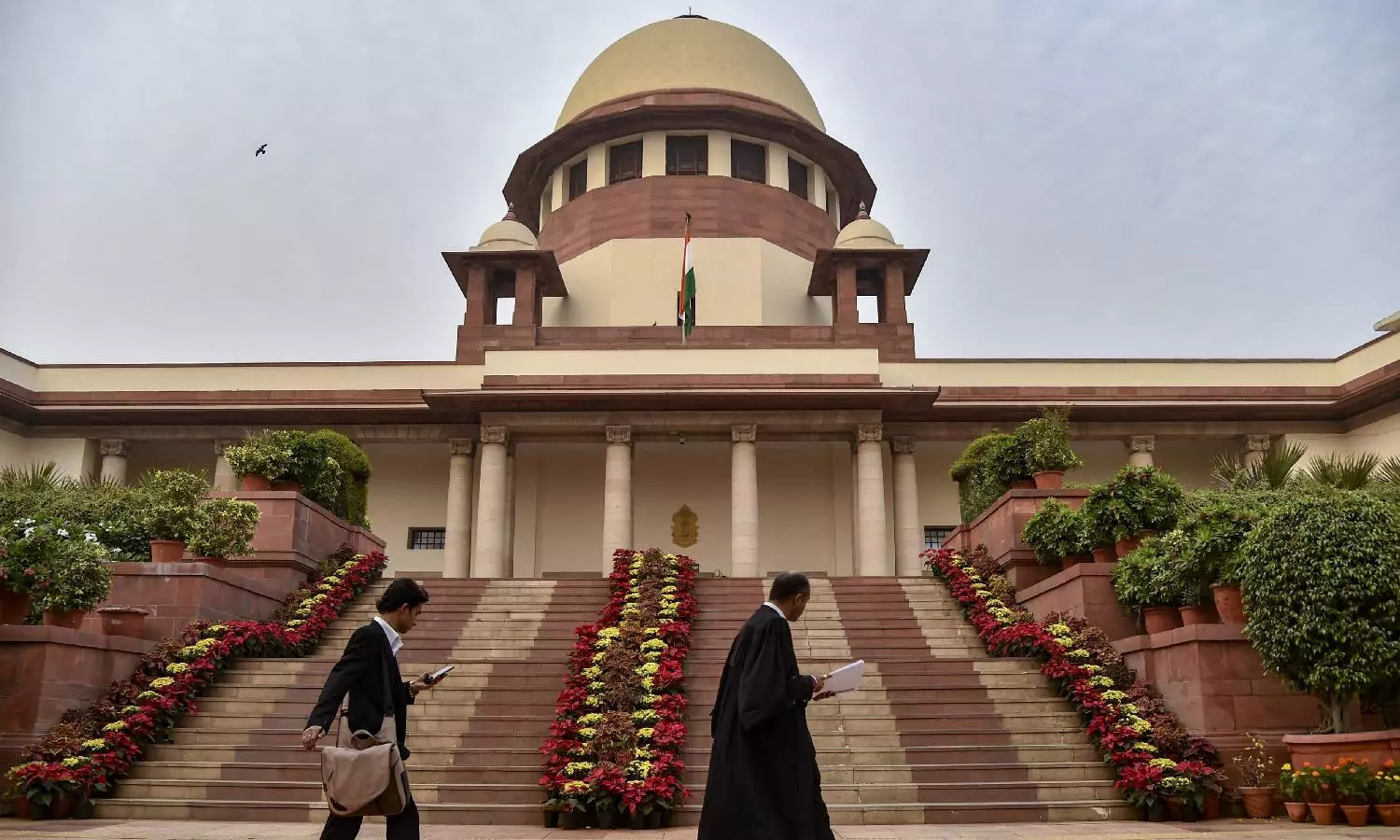
Supreme Court (PTI)
NEW DELHI: The Supreme Court on Thursday asked the States of Punjab and Haryana to continue their meetings with the protesting farmers, to persuade them to clear the highway along the Shambhu border.
A bench of Justices Surya Kant, Dipankar Datta, and Ujjal Bhuyan asked both states to continue their meetings with farmers and shall apprise them of the outcome of the same on the next date of hearing, September 2.
The bench further asked the Haryana and Punjab governments to submit proposed issues that will be the subject matter of reference for the Committee, which the apex court has proposed to constitute to hold negotiations with the protesters and the governments.
It also clarified that the reference to the committee will be a wider mandate so that the issues that are time and again causing law and order problems can be amicably resolved in a fair and just manner.
It also granted liberty to the State of Punjab to suggest more names for the composition of the committee within three days. Meanwhile, the bench said that its order that the status quo be maintained at the Shambhu border near Ambala shall continue.
Earlier, the top court had asked the Senior Superintendent of Police of Patiala and Ambala and the Deputy Commissioners of both districts to hold a meeting and explore possibilities of partial opening of the Shambhu border highway initially for ambulances, essential services, and daily commuters of the nearby area.
It said that it proposes to constitute an independent committee comprising eminent persons who can reach out to farmers and other stakeholders to find viable solutions to their demands that can be fair and in the interests of everyone.
The apex court was hearing an appeal against the July 10 Punjab and Haryana High Court order by which it had directed it to open the highway and clear the barricading within seven days.
In February, the Haryana government had set up barricades on the Ambala-New Delhi national highway farmers' bodies announced that farmers would march to Delhi in support of various demands, including a legal guarantee of minimum support price (MSP) for crops.


